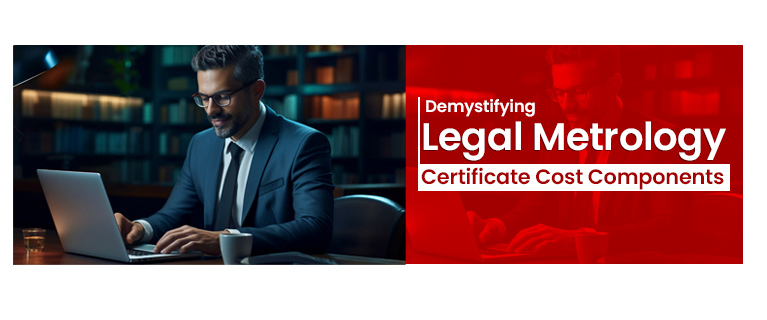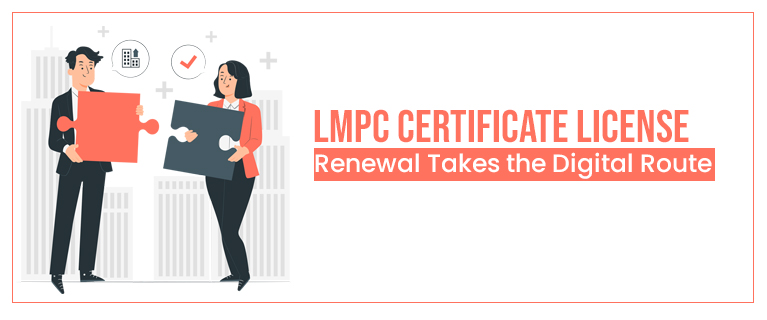Demystifying Legal Metrology Certificate Cost Components
In the realm of trade and commerce, accuracy and fairness are paramount. Legal metrology ensures that measuring instruments used in commercial transactions meet established standards, safeguarding both consumers and businesses. Central to this assurance is the Legal Metrology Certificate, a document verifying compliance with regulatory requirements. Understanding the cost components associated with obtaining this certificate is crucial for businesses navigating regulatory compliance. In this blog post, we delve into the various factors contributing to the cost of obtaining a Legal Metrology Certificate.
1. Initial Assessment and Consultation:
Before initiating the certification process, businesses often seek expert consultation to assess their current infrastructure and readiness for compliance. This initial assessment involves evaluating existing measuring instruments, identifying potential gaps, and outlining necessary corrective actions. The cost of this consultation varies based on the complexity of the business operations and the expertise of the consulting firm.
Read also this -: Applying for LMPC Import License2. Instrument Calibration and Testing:
A fundamental requirement for obtaining a Legal Metrology Certificate is ensuring the accuracy of measuring instruments. Calibration involves adjusting instruments to align with standard units of measurement, while testing involves verifying their accuracy through controlled experiments. The cost of calibration and testing depends on the number and type of instruments requiring certification, as well as the frequency of recalibration mandated by regulatory authorities.
3. Documentation and Record-Keeping:
Compliance with legal metrology registration necessitates meticulous documentation of calibration records, testing results, and other relevant documents. Maintaining accurate records is not only a regulatory requirement but also crucial for demonstrating compliance during audits or inspections. The cost of documentation includes the time and resources allocated to record-keeping processes, as well as any software or tools employed for data management.
4. Regulatory Fees and Charges:
Regulatory bodies responsible for legal metrology impose fees for various certification processes, including application fees, inspection charges, and renewal fees. These fees contribute to the administrative costs associated with overseeing compliance and conducting inspections. The amount of regulatory fees varies depending on the jurisdiction and the type of certification sought.
5. Training and Education:
Ensuring compliance with legal metrology registration often necessitates training employees on proper measurement techniques, instrument handling procedures, and regulatory requirements. Investing in employee training not only fosters a culture of compliance within the organization but also enhances operational efficiency and accuracy. The cost of training includes expenses related to curriculum development, trainer fees, and employee time away from regular duties.
6. Audit and Compliance Monitoring:
Regulatory compliance is an ongoing process that requires regular audits and monitoring to ensure continued adherence to legal metrology registration. Businesses may incur expenses associated with hiring external auditors, conducting internal compliance checks, and implementing corrective actions as needed. The cost of audit and compliance monitoring varies based on the size and complexity of the business operations.
7. Legal and Administrative Support:
Businesses may require legal and administrative support to navigate the complexities of legal metrology regulations, interpret regulatory requirements, and address any legal challenges or disputes that may arise. Legal counsel and administrative staff play a crucial role in ensuring that the certification process progresses smoothly and that the business remains in compliance with applicable laws and regulations.
Read also this -: How to Apply for an LMPC Certificate Online8. Technology and Infrastructure Upgrades
Achieving and maintaining compliance with legal metrology regulations may necessitate investments in technology upgrades, infrastructure improvements, and software solutions. Upgrading measuring instruments, implementing automated calibration systems, and integrating compliance management software can help streamline certification processes and enhance accuracy. The cost of technology and infrastructure upgrades varies based on the scale of the operations and the extent of the required enhancements.
In conclusion, obtaining a Legal Metrology Certificate involves various cost components, ranging from initial assessments and instrument calibration to regulatory fees and compliance monitoring. Businesses must carefully evaluate these cost factors and allocate resources accordingly to ensure smooth certification processes and ongoing compliance with legal metrology regulations. By investing in accuracy, fairness, and regulatory compliance, businesses can uphold their reputation, build consumer trust, and mitigate the risk of non-compliance penalties or legal consequences.




Comments
Post a Comment